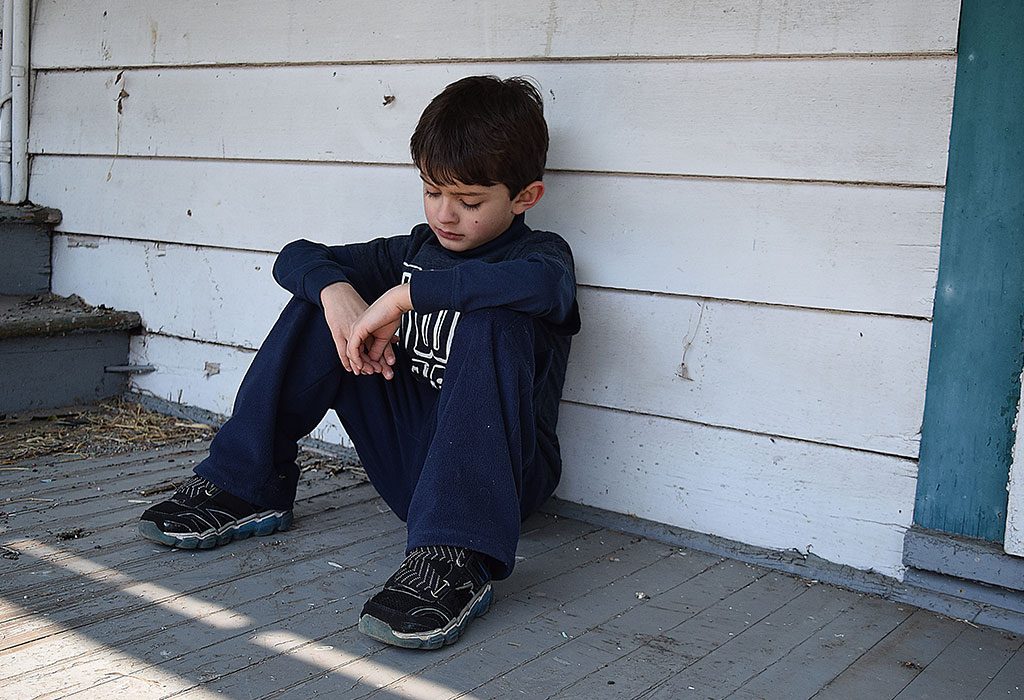In this Article
- What is Dysfunctional Family?
- Relationship Between Dysfunctional Family Members
- Reasons Of Dysfunctionality in Family
- Signs Which Indicate that You were Raised in a Dysfunctional Family
- Common Characteristics of Dysfunctional Families
- Effects of Growing Up in A Dysfunctional Family
- Tips to Overcome the Negative Effect of Dysfunctional Family
Every individual grows up in a family which has its own dynamics. The formative years of a child’s life and the environment he/she grows up in has a direct impact on how he/she functions as an individual.
What is Dysfunctional Family?
A family where conflict, neglect and misbehaviour are constant and everlasting is dysfunctional. Modern psychology defines dysfunctional families as those with anxious systems within them. There is a tremendous amount of emotional disturbance within the family members, and it sometimes means that it is coupled with child neglect and abuse. Children from dysfunctional families assume that this situation is normal as they are exposed to that environment regularly and do not know the different aspects of dealing with dysfunctional family.
A functional family, on the other hand, encourage all family members to attain optimal growth and provide a safe space for emotional well-being.
Relationship Between Dysfunctional Family Members
In a dysfunctional family, there is often apathy, child abuse and neglect involved to some degree. Children who come from dysfunctional families often have the low self-confidence or low self-esteem and grow up thinking that such kind of behaviour is normal. They have some adverse effects of dysfunctional families on child development.
In a normal functional family, there is mutual respect between family members and everyone has each other’s back. For dysfunctional families, there is always tension and mistrust amongst the parents and children. Also, the authority of the parents in the family is often misguided and without accountability. Even amongst adults, there is a certain level of mistrust and resentment. The members do not create a safe surrounding for a child to grow. There is an underlying fear and hurt constantly while growing up. Also, dysfunctional families do not value apology and do not allow for emotions to be expressed reasonably.
Reasons Of Dysfunctionality in Family
No family is perfect, and you do not get to chose the family you are born into or raised in. There are many reasons, both external and internal, that lead to dysfunctional families. Here are some traits of a dysfunctional family:
1. Finances
If a family is undergoing or has been in exceptionally poor financial situations, then it leads to more dysfunctional behaviour within the family members. As soon as the family is facing money issues, parents get anxious, and it leads to cracks in the family structure thereby leading to fights and disharmony.

2. Family History of Dysfunction
If for many generations there has been a history of family dysfunction, and the parent’s dynamics with their own parents is also dysfunctional, then the cycle remains unbroken. All the family members exhibit characteristics of someone raised in a dysfunctional family.
3. Violence
A history of violence- either physical, emotional or sexual, in the prior generation leads to fear, destructive behaviour and violence between the parents and towards the children.
4. Over Religious Belief Systems
If a family has strong religious beliefs with no room for conversation or debate or explanations it can lead to parents trying to enforce the same set of beliefs on their children. Parents might become strict without reason and purely on the basis of their fundamental opinion, and this can lead to dysfunctionality.
5. Authority
A reason for a dysfunctional family could be parents getting pushy, aggressively authoritative and tyrannical in their behaviour; this leads to over possessiveness and dislike amongst members.

Signs Which Indicate that You were Raised in a Dysfunctional Family
Often it may become difficult to deduce if you come from a dysfunctional family, but here are some signs you can check for the same:
1. You are a people pleaser
If you find yourself constantly trying to say yes to people and do anything in your power to please them, then it could be a sign that you are from a dysfunctional family. If you are nice for the sake of being nice and sacrifice personal needs to make others happy, that may be a sign. It is because as a child you might have been made to believe that you will be abandoned.
2. You are a Type A person
If you crave perfection in everything you do, it may be because you are afraid of failure which may be a result of growing up in a dysfunctional family.
3. You are constantly guilty
As an adult, if you feel guilty for other people’s situation or behaviour, neither of which are under your control, then it may be a sign. You feel guilty when people feel upset even if you are in no way responsible for it.
4. You lack communication skills
If you do not know how to communicate emotions in a healthy way with friends and family and you tend to shut down and not address it, then chances are you have been in a dysfunctional family.
5. Responsible towards others
When others make their own decisions, and you are not accountable for them, you still feel a sense of responsibility for what has transpired, especially when the situation is bad.
6. You are hard on yourself
No matter what you do or achieve, you are your harshest critic and you always criticise yourself first. You think that anything which is wrong is inevitably your fault in some way, and you are hard on yourself for that.
7. You have supreme levels of anxiety
Even when it’s all smoothly sailing, you are always worried that something will go wrong, leading to a high level of anxiety. Consequently, you are never able to enjoy yourself.
8. You feel isolated and empty
As a result of constant isolation, lack of emotional support as a child, you feel unfulfilled and empty. You constantly seek affection, and you are afraid to be alone.

9. You are frustrated
No matter how good your life is, you can always pinpoint something that is wrong, and you are dissatisfied. You feel like your efforts go unappreciated all the time.
10. You feel anguish
A feeling of hopelessness and anguish exists in your everyday life despite no dire circumstances. You have negative thoughts and look at life from a pessimistic perspective.
Common Characteristics of Dysfunctional Families
Dysfunctional families have several characteristics in common which showcase the infelicitous dynamics between family members and their attitude towards each other.
Here is what its like to be in a dysfunctional family:
1. Lack of communication
Members of a dysfunctional family do not know how to openly communicate with one another and often have serious communication problems. They sweep issues under the carpet and never discuss them. They do not create a healthy conducive environment for discussion and often shout or have huge screaming fights. Family members do not listen to each other and usually resort to other ways of communication.
2. Lacking Empathy
In a family which is dysfunctional, there is no empathy, or a very little of it. It is to such an extent that the children feel bad about themselves. There is no unconditional love and issues are always subjected to behaviour corrections even when it’s not necessary, and the child has only made a small mistake. There is no room for error which creates a claustrophobic environment which leads to a constant fear of failure in children.
3. Prone to Addiction
Children who have witnessed their parents being addicted to drugs, smoking or alcohol often as adults end up using such substances to cope up with life.

4. Mental Issues
Children who grow up watching adults around them suffering from mental illnesses and personality disorders often do not know how to cope or behave like adults. They also have a tendency to suffer from the same illnesses due to genetic predisposition.
5. Controlling Behaviour
Sometimes when parents exert an extra amount of control in children’s life, stifling their ability to grow, they also end up not encouraging good behaviour. This kind of control can lead to self-doubt in children when it comes to their abilities and also creates trust issues.
6. Perfectionism
Parents often end up putting pressure on their kids to perform and when that pressure becomes excessive, it leads to dysfunctional behaviour in them. Fear of failure is triggered and the children intend to grow up to be perfectionists.
7. Criticism
Children growing up in a dysfunctional family are constantly criticized for their abilities or lack of them and are berated for all their actions. Parents are often condescending, patronizing and mean instilling a sense of helplessness and lack of belief in the child leading to a low self-esteem.

8. Lack of Independence and Privacy
Parents constantly invade a child’s privacy and smother them to ensure that they have zero independence when it comes to decisions in a dysfunctional family. They need to check at all times what the kids are doing and do not have honest communication or rules about it.
9. No emotional support
There is no room for emotions or support for members of a dysfunctional family. There is no safe space provided for children to express their emotions clearly and in a positive manner. Kids often grow up lonely or isolated from their parents in this situation.
10. Violence and Abuse
Parents of the dysfunctional family may resort to physical abuse and hurting of a child. There may be signs of verbal, physical, sexual or emotional abuse in children who come from dysfunctional families. Children observe this as normal and showcase the same behaviour as adults later.
Effects of Growing Up in A Dysfunctional Family
Growing up in a dysfunctional family can largely have negative effects on the children in the family. Mistrust, anxiety, despise and other negative emotions lead to a very insecure adult.
Certain common behaviour patterns can be observed in people who come from a dysfunctional family. They are:
- They have a bad image of self and suffer from lack of self-confidence and self-esteem.
- They find it difficult to form healthy adult relationships and are shy or have a personality disorder.
- They get angry frequently and easily and prefer to be in isolation.
- In studies, their performance is usually poor as they struggle to concentrate and focus.
- They exhibit self-harm or self-destructive behaviour.
- They are prone to addiction to alcohol, drugs or smoking.
- They can suffer from serious mental conditions such as depression, suicidal thoughts, anxiety, paranoia
- Such people may lack discipline as they do not have a good role model to look up to while growing up and can become irresponsible or destructive.
- They can also lose their childlike qualities of innocence as they have to take major responsibilities at an early age.
Tips to Overcome the Negative Effect of Dysfunctional Family
Once you have identified if you come from a dysfunctional family, the first step is to acknowledge and recognise behaviours and habits that are related to the dysfunctional baggage. As adults, you are surviving the effects of being brought up in a dysfunctional family effects. There are ways to deal with it. Here is how:
1. Take Responsibility
As adults, you have a choice to overcome your circumstances and work towards creating a healthier emotional situation. It is important to take the responsibility for your actions and learn how to meet the expectations that are set for you by yourself and your family.
2. Seek Help
Once you recognise your shortcomings, it is important to seek professional help or help in any form to deal with the issues from childhood. Dealing with low self-confidence can be a difficult thing, and it always helps to have the support of family and friends.
3. Get Creative
Sometimes, conflicting situations can make way for creativity and expression. If you want to overcome the negative effect of a dysfunctional family, express yourself in a healthy way to your family and close ones. Share your thoughts and discuss how you can rebuild relationships.
4. Build Trust
It is not easy to grow up in a place where trust is hard to come by amongst the adults you have seen around you. As a child, if you have seen your parents be mistrustful, their is a tendency that you will carrythe same into your adulthood. With time and patience, learn to build trust amongst your closest ones.

5. Build bridges with your family
Families who are dysfunctional are emotionally unstable, and as adults, you have the choice to build or rebuild a relationship that is broken. Start with baby steps and try and forgive and support your family wherever you can.
No matter what kind of an upbringing you have had, there is always an opportunity as an adult to reflect and improve yourself and to have meaningful relationships with people!









